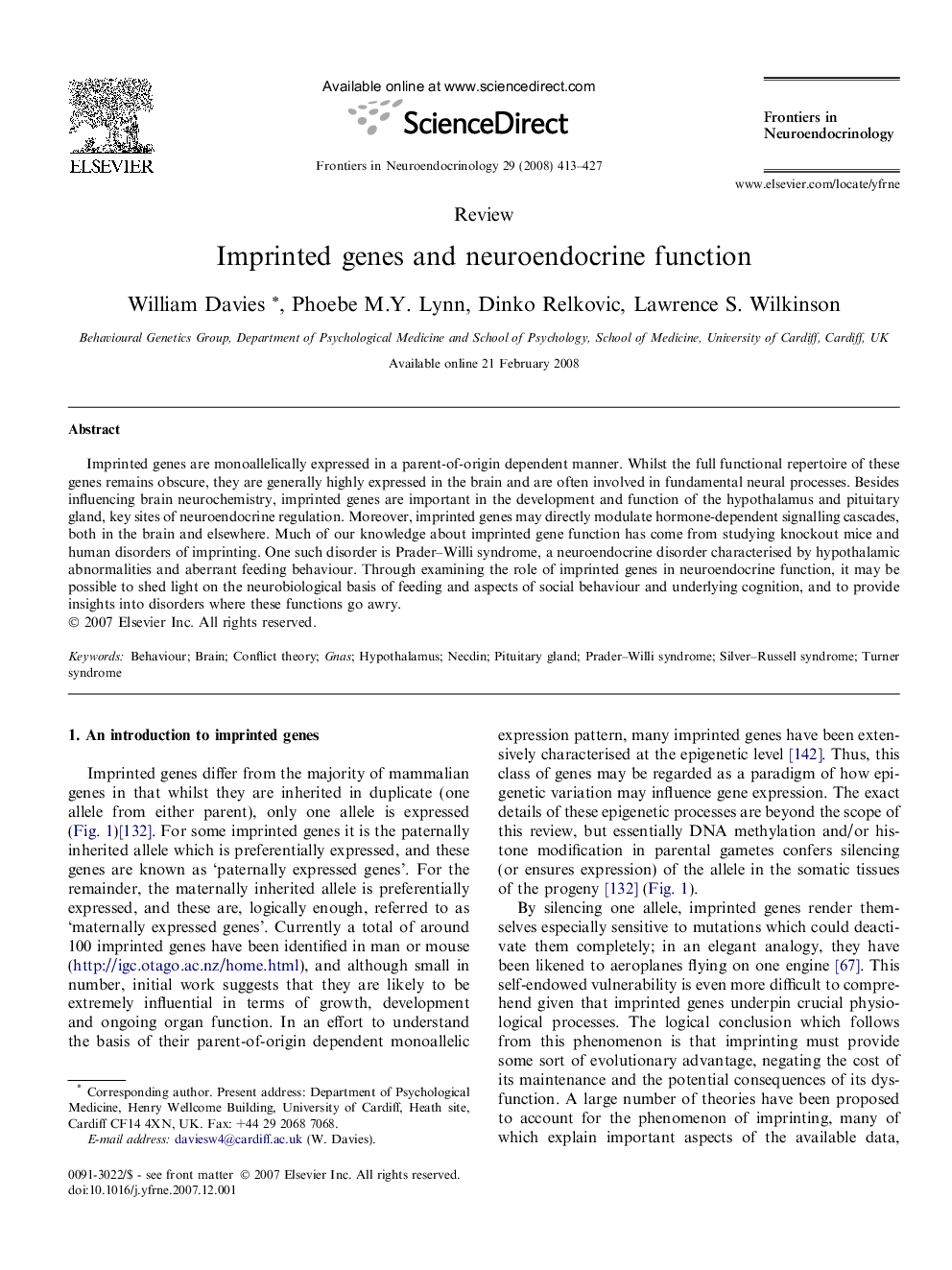| Article ID | Journal | Published Year | Pages | File Type |
|---|---|---|---|---|
| 2799730 | Frontiers in Neuroendocrinology | 2008 | 15 Pages |
Imprinted genes are monoallelically expressed in a parent-of-origin dependent manner. Whilst the full functional repertoire of these genes remains obscure, they are generally highly expressed in the brain and are often involved in fundamental neural processes. Besides influencing brain neurochemistry, imprinted genes are important in the development and function of the hypothalamus and pituitary gland, key sites of neuroendocrine regulation. Moreover, imprinted genes may directly modulate hormone-dependent signalling cascades, both in the brain and elsewhere. Much of our knowledge about imprinted gene function has come from studying knockout mice and human disorders of imprinting. One such disorder is Prader–Willi syndrome, a neuroendocrine disorder characterised by hypothalamic abnormalities and aberrant feeding behaviour. Through examining the role of imprinted genes in neuroendocrine function, it may be possible to shed light on the neurobiological basis of feeding and aspects of social behaviour and underlying cognition, and to provide insights into disorders where these functions go awry.
